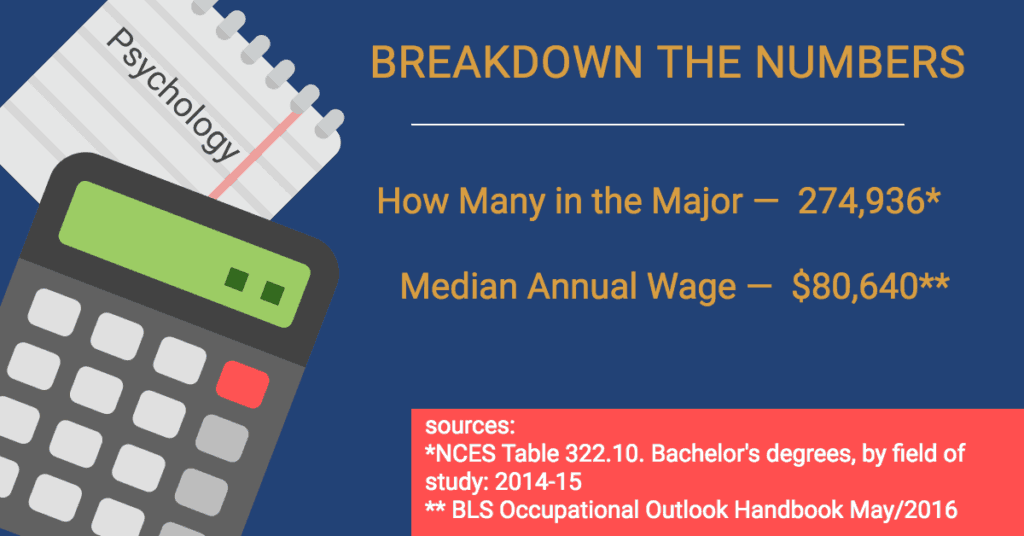
People are more aware of the importance of mental health today than in the past, and the stigma that once attached to receiving therapy or counseling has largely eroded in the last generation, so career potential for psychologists and counselors is promising.
Psychology and Counseling are two related fields – both are centered around mental health, but psychology includes both clinical and research components, while counseling generally uses the insights of psychology in direct practice with clients. Neither of them is psychiatry, which is a medical practice that requires a medical degree, and allows practitioners to prescribe medication.
Recommended Online Counseling Degree Programs
Earn your counseling degree from home
The real story in Psychology, however, is in applying psychological research, knowledge, and insights to areas outside of traditional clinical psychology. Psychology majors can find their professional lives in an almost unlimited array of settings and industries, from business and management, to marketing and advertising, to government, military, and law enforcement. Computer science, product design, and urban planning all incorporate psychology.
College Consensus has the needs of prospective students and professionals at its heart, and to make the most of your potential, we bring together a whole spectrum of knowledge and information about the higher education landscape, the job market, and the whole kit and caboodle of career development. This guide gives future psychology and counseling majors a valuable picture of the field, from major to career.
What Are the In-Demand Major Options?
Because Psychology and Counseling are closely linked, the steps to getting a degree may be somewhat confusing. Professionals with a Psychology degree may go into counseling; counselors may also have degrees in other fields, like sociology, but be licensed to practice counseling. However, counselors are not necessarily psychologists.
Generally, counselors can be licensed and work professionally with a master’s degree in psychology or some form of counseling; many specializations, like Addiction Counseling, Marriage Counseling, or just general Mental Health Counseling are available at the master’s level. Some of the most popular counseling specializations include:
- Addiction/Substance Abuse Counseling
- Vocational Counseling
- Marriage/Family Counseling
- Grief Counseling
Psychologists, however, must have a doctorate in Psychology. This means that psychologists have a much deeper experience and expertise, particularly in research, and have more options for their career paths, including clinical practice, research, and teaching. While psychologists may choose the traditional clinical psychology path – the stereotypical “shrink” – there are many popular specializations being offered today that reflect the modern job market:
- Industrial-Organizational Psychology
- Forensic Psychology
- Sports Psychology
- Educational/Developmental Psychology
These kinds of psychology specializations open up a whole wide world of career options, from law enforcement to corporate management to coaching. Majoring in psychology definitely doesn’t mean listening to someone whine on a couch all day.
Are There Any Online Options for Studying Psychology & Counseling?
Since much of psychology education is theory and research, it has proven to be very reliable and accessible for online education; from the bachelor’s to doctoral level, students can earn a psychology degree fully or partially online.
However, students planning to go into clinical psychology, or to become licensed as practicing counselors, will usually need an internship and clinical experience; most online programs allow students to do hands-on work in their own region, so the online option remains relatively convenient.
Beyond psychology, counseling degrees are prevalent online, since most students going into counseling are starting with a bachelor’s degree in psychology or another field already in hand; counseling is a surprisingly common second career. Counseling degrees are especially common from private Christian colleges and universities, many of which have established rigorous online programs.
Are There Complimentary Majors or Fields to Psychology & Counseling?
Psychology and Counseling majors who are planning to go into some kind of clinical practice, research, or administrative career have a number of possible minor and double-major options that can be extremely helpful:
- Second Language
- Nutrition/Health Sciences
- Sociology
- Social Work
- English/Writing/Communications
In the American melting pot, a second language is one of the most valuable skills students tend to overlook, but for graduates going into counseling, it can mean not only better care for patients and clients, but open up a wider clientele. Other minors, like Nutrition, Health Sciences, and Sociology, can contribute to a specialization or career path; many counselors who deal with youth encounter anorexia and bulimia, for instance, making Nutrition a useful area of expertise.
A minor or double major in English, Writing, or Communications can be even more widely valuable; psychologists and counselors do a great deal of writing in their reports and records, as well as reporting on their research, so strong communications skills can be a welcome addition.
Communication and writing expertise also has its value for graduates planning to go into non-clinical careers. So can minors like:
- Business/Management
- Design
- Computer Science/UX Design
One of the most common career paths for psychology majors is business, while psychology is also useful in areas like product design, marketing, and sales. Psychology is also valuable in some newer areas of computer science like User Experience (UX) Design and Human-Computer Interaction. It’s a brave new world, and psychologists are ready for it.
Advanced or Alternative Degree Options?
Most psychology degrees are advanced degrees; licensure as a counselor requires a master’s degree, while working as a clinical psychologist requires a doctorate. However, students planning to enter non-clinical careers may do so with a bachelor’s degree, though many psychology BS holders will eventually earn a master’s degree in the field they enter, such as business, criminal justice, or education.
The regulatory requirements involved in working as a clinical psychologist means that there are very few alternative education programs, but counseling is less rigorous, and as a result there are a number of non-traditional routes.
Holistic counseling programs and degrees, which incorporate practices of alternative therapy, spiritual and new-age counseling, and meditation, are increasingly common as patients seek non-Western and non-medical treatments. Holistic and new-age counselors may earn a special certification from a holistic medicine center to add to a conventional master’s degree, or earn a degree in holistic healing from an accredited college.
With the growth of evangelical Christianity, Christian counseling has also become increasingly common. Christian counseling brings a faith-based or biblical perspective to conventional counseling, and, as with holistic counseling, may involve a certification added to a traditional degree, or be earned from a Christian college or university.
What Kind of Career Might I Pursue?
The most obvious career path for Psychology and Counseling, of course, is clinical practice – meeting with patients or clients and helping people work through their illness or problems. In this capacity, Psychologists and Counselors may work in a variety of settings, including hospitals and clinics, group homes, corrections facilities, schools, and churches, as well as in private practice.
But psychology majors who do not turn to counseling or clinical practice have an even wider range of options open to them depending on their interests and specializations. Non-psychology fields that use psychology include:
- Corporate Management/Leadership
- Entertainment
- Industrial/Product Design
- Law Enforcement
- Marketing/Advertising
- Urban Planning
- Web Design
Education is always an option for graduates with psychology degrees as well, since psychology is taught at every community college, college, and university in the nation. However, the job market for psychology professors is extremely competitive; for success, teaching needs to be the goal, not a fallback.
Recommended Online Counseling Degree Programs
Explore our featured online programs to find the right match for you today.
Required Skills or Personality Type?
Obviously, for clinical psychologists and counselors, strong interactive skills are essential:
- Patience
- Compassion
- Empathy
- Objectivity
- Calm
Good coping abilities are also important; counselors and psychologists encounter extremely traumatizing situations, and must be able to keep their work from infecting their own feelings and home life. Psychologists and counselors must also exhibit the very highest ethical and moral standards, due to the influence and power they can exert over patients and clients.
For those who work outside of clinical settings, the necessary skills and characteristics depend on their workplace and industry norms, but generally, strong communication skills, teamwork, and professionalism are expected.

Related:
Best Online Psychology Bachelor’s
Best Online Psychology Master’s
Best Online Counseling Bachelor’s
Best Online Counseling Master’s
Best Online Master’s in Family Counseling
Best Online Master’s in Forensic Psychology
Best Online Master’s in Organizational Psychology
Best Online Master’s in Mental Health Counseling
Best Online Master’s in Behavioral Psychology
Best Online Master’s in Child Psychology
